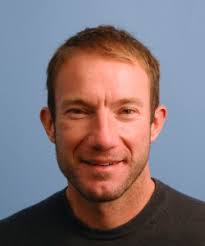Practical FIGG Casework Bioinformatics for the Forensic Practitioner
Home » Practical FIGG Casework Bioinformatics for the Forensic Practitioner
- Workshop
Practical FIGG Casework Bioinformatics for the Forensic Practitioner
- September 26, 2024 //
- 1:30 pm -
- 4:30 pm //
- Grand Oaks Ballroom E
Description:
This workshop enables better understanding of whole genome FIGG SNP data processing. Educational content bridges operational criminalistics laboratories and “behind the scenes” bioinformatics. Attendees gain hands-on experience with publicly available tools. In immersive scenario-based activities attendees engage in interactive and dynamic learning. An end-to-end forensic workflow is learned in manageable steps: from raw sequence data through alignment, variant calling, and GEDmatch Pro report generation. Provided handouts can assist with subsequent in-house train-the-trainer efforts. By drawing parallels to familiar processes, subject matter is accessible to the non-bioinformatician. Participants apply advanced open-source tools to mock case data, e.g., allelic imputation, DNA mixtures.
Learning Outcomes:
- As educated end users of bioinformatics data
- Having practiced with real datasets and developed practical skill to better assure quality from genomic data generated in-house or FIGG service provider(s) in violent crime investigations and missing persons cases.
- Able to apply or evaluate FIGG bioinformatic approaches.
- Empowered with confidence to navigate a GNU/Linux operating system and a suite of tools.
- With a solid bioinformatic foundation and ability to converse effectively with diverse audiences about FIGG SNP data generation and curation.
Intended Audience:
Analysts, technical leaders, and management who perform, oversee, or evaluate FIGG programs that use whole genome SNP data. Suitable for those just beginning.
Description:
This workshop enables better understanding of whole genome FIGG SNP data processing. Educational content bridges operational criminalistics laboratories and “behind the scenes” bioinformatics. Attendees gain hands-on experience with publicly available tools. In immersive scenario-based activities attendees engage in interactive and dynamic learning. An end-to-end forensic workflow is learned in manageable steps: from raw sequence data through alignment, variant calling, and GEDmatch Pro report generation. Provided handouts can assist with subsequent in-house train-the-trainer efforts. By drawing parallels to familiar processes, subject matter is accessible to the non-bioinformatician. Participants apply advanced open-source tools to mock case data, e.g., allelic imputation, DNA mixtures.
Learning Outcomes:
- As educated end users of bioinformatics data
- Having practiced with real datasets and developed practical skill to better assure quality from genomic data generated in-house or FIGG service provider(s) in violent crime investigations and missing persons cases.
- Able to apply or evaluate FIGG bioinformatic approaches.
- Empowered with confidence to navigate a GNU/Linux operating system and a suite of tools.
- With a solid bioinformatic foundation and ability to converse effectively with diverse audiences about FIGG SNP data generation and curation.
Intended Audience:
Analysts, technical leaders, and management who perform, oversee, or evaluate FIGG programs that use whole genome SNP data. Suitable for those just beginning.
Pricing:
- Standard Registration$275
- Student Registration$125
Fee includes lunch, break and handouts.
- Early Registration
- $250.00
- Standard Registration (after July 15)
- $295.00
- Student Registration$195.00
- $195.00
Workshop currently at capacity. A waitlist is available to join on our registration page.




